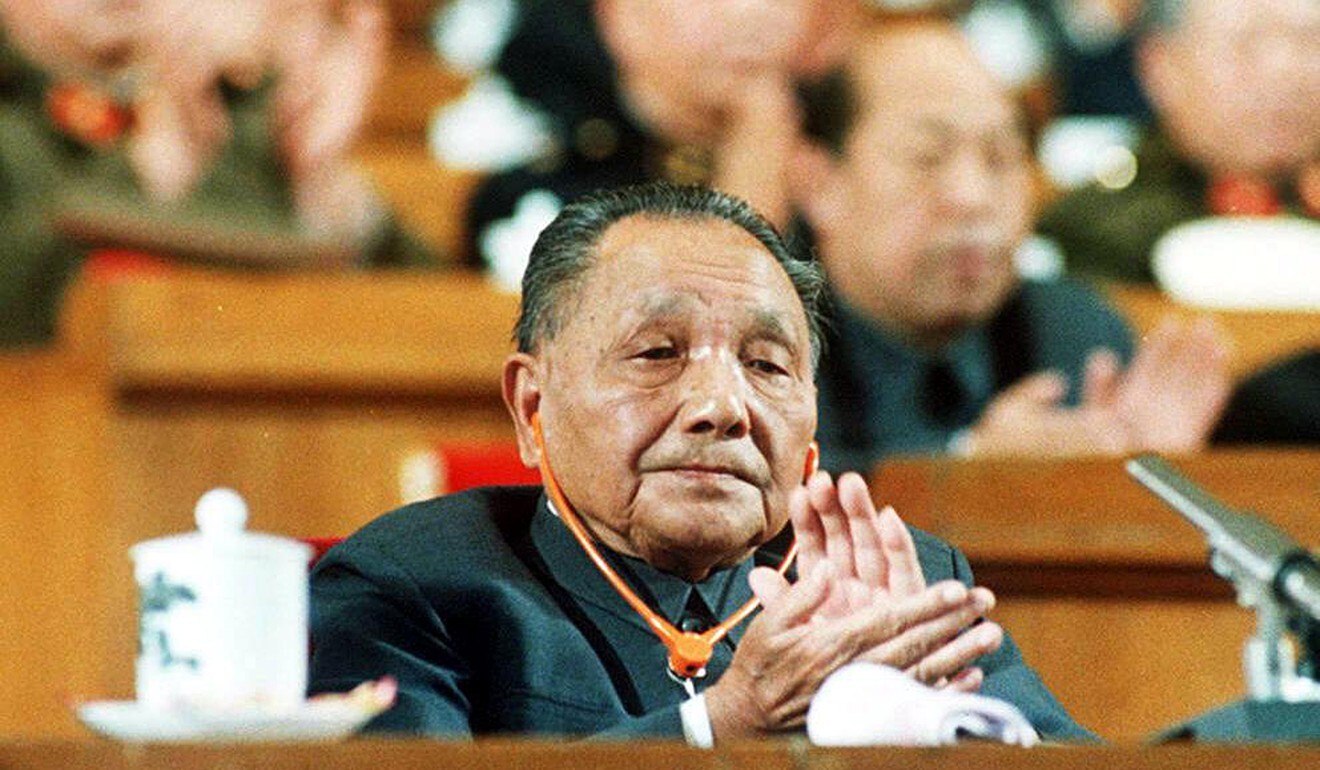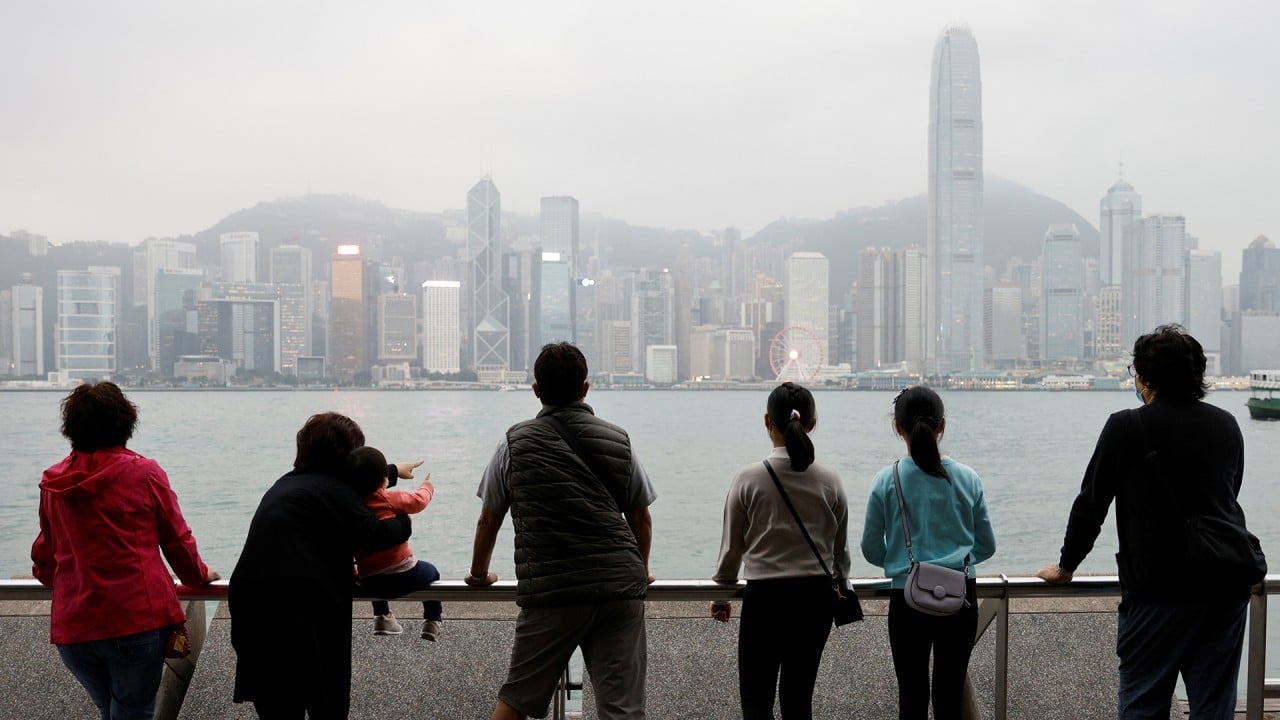
In pursuit of a ‘loyal opposition’: Beijing’s drastic shakeup of Hong Kong’s electoral process has one clear goal – control
- China’s top legislative body now meeting in the capital could endorse measures that would sideline opposition members from the committee that picks the chief executive
- Beijing may instead target the bloc through expanding oath-taking requirements to disenfranchise district councillors, but observers say the result will be the same – to stack all elections with candidates it can control
Beijing’s plans to rein in Hong Kong district councillors represent part of the central government’s sweeping project to reform the city’s opposition and curb its influence to a level the country’s leaders can accept, according to analysts.
Observers of Hong Kong affairs said Beijing was trying to “drain” the city’s political system of players it deemed to be disloyal and reconstruct it to ensure that “patriots must form the main body of the city’s administrators”, as late paramount leader Deng Xiaoping said in the 1980s.
But critics and the opposition camp reacted with anger and despair, warning that the future of the city’s democratic development was being abandoned, with Beijing putting its need to assert absolute control at the expense of a well-established electoral system. With Beijing’s crackdown, Hong Kong people’s aspiration for electing their leader by popular ballot was being cast aside, they said.

Steps weighed in Beijing
Insiders also said on Tuesday the proposals could be placed on the agenda of a meeting of China’s top legislative body, the National People’s Congress Standing Committee (NPCSC), now ongoing until Saturday. The measures – if endorsed – would be further scrutinised at the NPC’s next plenary session due to kick off in March.
Hongkonger rejected by US consulate reveals he was protester shot last year
On Wednesday, sources revealed more details, with one suggesting that it was possible that the NPCSC meeting could end on Saturday without a final decision on overhauling the Election Committee and the district councils. The central authorities would need more time to work out details of the changes, with the standing committee deferring the decision until the March plenary session.
But other sources said that even if the NPCSC could not make a final decision on reforming the Election Committee, it could still approve a resolution on Saturday to require district councillors to take an oath to pledge allegiance to the city. The document could also specify that councillors would face disqualification for endangering national security or supporting the city’s independence over the past year.
“Compared with shaking up the Election Committee, it would be easier, and there is more consensus between the pro-Beijing camp and the central government that the rules on oath-taking and the disqualification of district councillors should be laid down,” one of the sources said on Wednesday.
Seeking a ‘loyal opposition’
Hong Kong watcher and former researcher at Taiwan’s Academia Sinica, Lim John Chuan-tiong, read the moves as part of Beijing’s comprehensive plan to shore up its overall control in Hong Kong.
“Beijing was alarmed by the ‘anti-extradition movement’ and concluded that Hong Kong’s existing institutions are not able to ensure long-term control,” he said. “So it has chosen to deploy its own teams, including the national security office, to directly intervene in Hong Kong matters and draw a new set of bottom lines for Hong Kong, including the conduct of the administrative officers and members of the Legislative Council.”
Professor Lau Siu-kai, a senior adviser to Beijing and vice-president of semi-official think tank the Chinese Association of Hong Kong and Macau Studies, said that after the anti-government protests broke out last year over the extradition bill, Beijing officials were determined to press ahead with a “reorganisation or rebuilding of Hong Kong’s political system”.
Now the power to disqualify is deemed not sufficient. That’s why [Beijing ] has put in place a double-tier safeguard
“What it wants is a ‘loyal opposition’ – patriots don’t have to be loyal to Beijing, the Communist Party or the local government, but you must uphold the Chinese constitution and the Basic Law, respect Beijing’s authority over Hong Kong, and not collude with external forces.”
Lau also said that even though the district councils were advisory bodies, Beijing could not tolerate them being used by the opposition camp as a platform to stir up political conflict, and challenge the city’s government.
Political scientist Ivan Choy Chi-keung, of Chinese University, also said Beijing’s latest plans showed its determination to be extra cautious in making sure who could get through major elections in the city.
Choy said electoral officials’ power to disqualify candidates for the Legco and district council elections could have already achieved Beijing’s interest in the result.
“But now the power to disqualify is deemed not sufficient. That’s why it has put in place a double-tier safeguard,” he said.
Victors become targets
Just a year ago opposition candidates swept aside their pro-establishment rivals in a political tsunami, scoring a massive victory in the district council elections – once the stronghold of the pro-Beijing camp – by winning 392 out of 452 seats.
According to a count by the Post, this year some 50 elected opposition councillors, or 13 per cent of the bloc, had been arrested over offences such as police obstruction, illegal assembly, misconduct in public office, or conspiracy to defraud in relation to expense claims for the now-postponed Legislative Council elections.
Sources added that apart from those 50 arrested, mostly aged between 20 and 35, and active in last year’s protests, district councillors who had supported the city’s self-determination would also be targeted, along with those deemed to have endangered national security. How the assessment would be made was not immediately clear, but electoral officers’ actions in the recent months provide a clue.
In July, 12 members of the opposition camp were barred from running in the September Legco elections that were eventually postponed by a year. They included four district councillors – Lester Shum, Cheng Tat-hung, Tiffany Yuen Ka-wai and Fergus Leung Fong-wai.
Returning officers who vetted their applications cited the four candidates’ objections to the national security law, their vows to veto the government budget if elected, or their calls for foreign governments to intercede in Hong Kong affairs as evidence that they would not uphold the city’s mini-constitution or bear allegiance to the city.
If the disqualifications affect a large number of district councillors, it may well resemble a coup
Pundits believed that if Beijing pressed ahead with the plan to disqualify district councillors, those four faced a higher risk of losing their seats.
Shum said the possibility that Beijing would seek to remove district councillors was troubling.
“If the disqualifications affect a large number of district councillors, it may well resemble a coup, as Beijing is overturning an election in which many in Hong Kong participated,” said Shum, who was best known for leading the Occupy protests in 2014 and is now one of the most prominent faces of the resistance bloc.
Asked how he and his comrades would react to such a move, Shum said if Beijing really pressed ahead with its plans, the people’s right to express opinion would be further suppressed.
“It will essentially result in a state of ‘curfew’ without the government having to declare it,” he said.
Under the national security law, the oath-taking requirement has already been extended to government ministers’ deputies and political assistants, as well as civil servants this year.
Compulsory courses ‘not the best way’ for national security education in Hong Kong
Sources suggested that under Beijing’s latest plans, district councillors would need to pledge to uphold the Basic Law, as well as swear allegiance to the city. The Hong Kong government would then examine individual councillors’ acts or remarks in the past year to decide if they should be stripped of their seats, and those seats would then be left vacant until the next election, according to a pro-establishment source.
“By-elections are impossible amid the pandemic, and it’s unlikely for the government to [appoint politicians to fill those seats],” the person said.
“The district councils are advisory bodies, not constitutional institutions of power. Some seats in Legco were left vacant for a year, and there was no problem with that.”

04:03
‘Nothing is scarier than staying’: Hong Kong family uproots as fear looms over city’s future
‘Shrinking democratic space’
Political scientist Ivan Choy said while it was difficult to predict the opposition camp’s fate, the current state of events showed the approach advocated by the more radical flank had dramatically shrunk rather than expanded democratic space in the city.
Some anti-government protesters last year advocated laam caau – or mutual destruction – in the hopes that political pressure heaped on the government when it was caught in the cross hairs of China-United States tensions would yield concessions.
The approach had been endorsed largely by a new breed of protesters-turned-political aspirants, who call themselves the kong zang pai or “resistance bloc” to distinguish themselves from the moderate pan-democrats as they continued with a more confrontational approach after winning seats in the district council elections.
Choy said now that the city had paid a price – with residents leaving Hong Kong and foreign governments turning hostile against the city and Beijing – the central government seemed undeterred.
“There aren’t that many more trump cards from the opposition camp,” he said.
Under Article 45 of the Basic Law, the chief executive is to be ultimately elected by universal suffrage.
Former Democratic Party lawmaker James To Kun-sun, who is a district councillor, argued that district councillors’ role on the Election Committee would ensure that the body fit the Basic Law’s requirement of being “broadly representative”. But it appeared Beijing was discarding that objective, he said.
The Communist Party wants to know the result of an election beforehand, but that’s not something that Hong Kong has been promised
“Beijing’s thinking was simple … It was worried that the 117 district councillors in the election committee would affect its absolute control. When there is no more ‘one country, two systems’, I think Hong Kong people do not care about what Beijing does any more,” he said, referring to the principle that guarantees the city a high degree of autonomy.
Alan Leong Kah-kit, chairman of the opposition Civic Party, also lambasted Beijing for deviating from Hong Kong people’s demands for a genuine leadership election.
“The Communist Party wants to know the result of an election beforehand, but that’s not something that Hong Kong has been promised,” said the former lawmaker. “If the NPCSC does things that are not within the expectations of the Hong Kong people and the world … it would deal a fatal blow to the trust that Hong Kong earned.”
But Lau Siu-kai insisted that it was too early to say that Beijing was dishonouring its promises.
“If Hong Kong’s problems can be rectified … maybe it will be confident of allowing universal suffrage in the city,” he said.
Song Sio-chong, a professor at Shenzhen University’s Centre for Basic Laws of Hong Kong and Macau, said the concern for Beijing was more immediate: ensuring its proxies in the pro-establishment camp remained firmly in the driver’s seat in steering the city’s politics. Without that, Beijing too feared losing control over the entire city.
“If nothing is done, the pro-establishment camp is very likely to lose their majority in Legco and the Election Committee after the crushing defeat in district council elections last year,” Song said.




